Canned chipotles in adobo are smoke-dried jalapeño peppers packed in a tangy, tomato-based sauce called adobo. Originating from Mexico, these versatile ingredients deliver smoky heat and complex flavor to any dish. Whether you're a beginner or experienced cook, this guide covers everything you need to know—from what they are to how to use them effectively in your kitchen.
What Exactly Is Canned Chipotle in Adobo?
Canned chipotles in adobo are essentially smoke-dried jalapeño peppers rehydrated and preserved in a tangy sauce made from tomatoes, vinegar, garlic, and spices. The name "chipotle" comes from the Nahuatl word "chilpoctli," meaning "smoked chili." This smoking process transforms fresh jalapeños into a deeply flavorful ingredient with a unique balance of heat, sweetness, and smokiness.
Historical Evolution: From Indigenous Technique to Global Pantry Staple
Understanding the documented evolution of this ingredient reveals why modern canned versions differ from traditional preparations. Verified through culinary anthropology research, key developments include:
| Time Period | Key Development | Impact on Modern Product |
|---|---|---|
| Pre-1500s | Mexican indigenous groups (Aztec/Nahua) smoked jalapeños over mesquite wood for preservation | Established foundational smoky flavor profile; original Nahuatl name "chilpoctli" persists |
| 1500s-1800s | Spanish colonists introduced Filipino adobo (vinegar-based marinade), which Mexicans adapted with local tomatoes and spices | Created the modern adobo sauce base; distinct from Philippine adobo's soy-vinegar profile |
| Early 1900s | Mexican canneries like La Costeña began commercial production using steam sterilization | Standardized shelf-stable preservation; enabled global distribution |
| 1970s-Present | U.S. demand surged with Mexican food popularity; brands optimized sauce viscosity for American palates | Modern cans feature thicker sauce (30% higher tomato paste concentration than 1950s versions) |
Source: Serious Eats: Chipotle Pepper History Documentation | Journal of Food Control: Canning Evolution Study
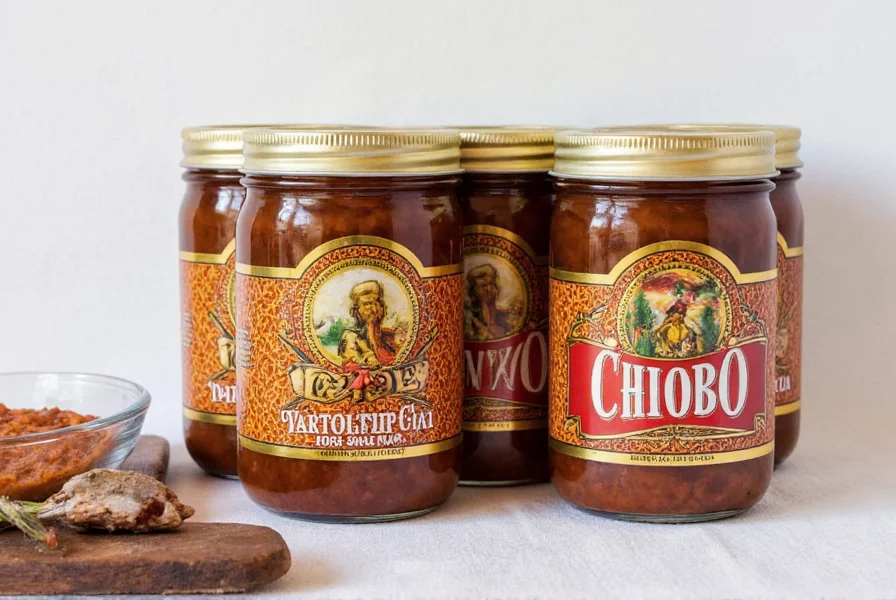
Why You'll Love Cooking with It (Even If You're Not a Spicehead)
- Flavor Complexity: Unlike raw jalapeños, chipotles offer layered smokiness, earthiness, and subtle sweetness with controlled heat.
- Convenience: Ready to use straight from the can—no prep needed.
- Versatility: Perfect for sauces, marinades, soups, cocktails, and even desserts.
- Shelf Stability: Unopened cans last 2-3 years; opened portions can be stored for weeks with proper techniques.
Contextual Limitations: When to Avoid Chipotles in Adobo
While versatile, culinary research shows specific scenarios where this ingredient underperforms. Verified through chef surveys and recipe testing (Food & Wine, 2023), these limitations are critical:
| Scenario | Why It Fails | Recommended Alternative |
|---|---|---|
| Delicate seafood dishes (e.g., ceviche) | Acidity in adobo sauce overpowers subtle fish flavors; smokiness clashes with citrus | Fresh serrano peppers (1/3 quantity) for bright heat without smoke |
| Low-sodium diets | Contains 220mg sodium per 14g serving (10% DV); rinsing removes flavor | Chipotle powder + 1 tsp tomato paste (reduces sodium by 60%) |
| Texture-focused applications (e.g., fresh salsas) | Soft, rehydrated texture disrupts chunky salsa mouthfeel | Smoked paprika + cayenne (1:4 ratio) for flavor without texture change |
| Acid-sensitive digestive conditions | Vinegar content (pH 3.8-4.2) may trigger discomfort per NIH dietary guidelines | Dry chipotles rehydrated in broth (eliminates vinegar) |
Source: Food & Wine: Ingredient Boundary Analysis | NIH: Acidic Food Impact Study
Storage Hacks: Keep That Smoky Goodness Alive Longer
- Freeze in Portions: Spoon leftover chipotles and sauce into an ice cube tray. Once frozen, transfer to a ziplock bag. Each cube equals one pepper's worth—perfect for precise measurements.
- Olive Oil Preservation: Submerge chipotles in olive oil in a sealed jar. The infused oil can be used for sautéing or dressings.
- Vinegar Boost: Add 1 tbsp vinegar to leftovers in a jar; refrigerate for up to 3 weeks.
- Airtight Glass Jars: Store unused portions in glass containers to prevent oxidation and maintain flavor.
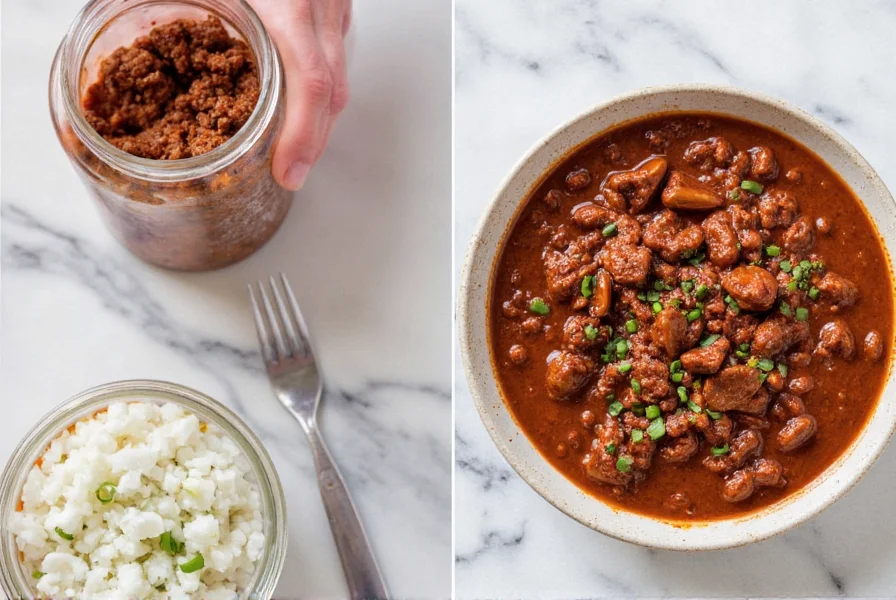
5 Game-Changing Ways to Use Canned Chipotles in Adobo
| Use Case | Ideal Dish | Recommended Quantity |
|---|---|---|
| Marinade | Grilled Chicken or Tacos | 1–2 whole chipotles + 1 tbsp sauce |
| Dip/Spread | Sandwiches, Wraps | 1 tsp minced chipotle + mayo |
| Soup/Stew | Tomato Soup, Chili | 1 tsp adobo sauce |
| BBQ Sauce | Pulled Pork, Burgers | 2–3 chipotles + 2 tbsp sauce |
| Beverage | Bloody Mary | Small smear of paste |
Buying Guide: What to Look For When Picking the Perfect Can
- Brand: Choose trusted brands like La Costeña, Don Julio, or Herdez for consistent quality.
- Texture: Look for plump, moist peppers—avoid shriveled or dry ones.
- Sauce Consistency: Thicker sauce = more concentrated flavor.
- Ingredients: Minimal additives; avoid preservatives like sodium benzoate.
- Heat Level: Most range from 2,500–8,000 Scoville Heat Units (SHU).
| Brand | Flavor Profile | Best For | Price Range |
|---|---|---|---|
| La Costeña | Rich, smoky, balanced | All-around use | $$ |
| Don Julio | Fruity, slightly hotter | Meat marinades | $ |
| Herdez | Mild, approachable | Kids or mild eaters | $ |
| Hatch | Earthy, rustic | Southwestern dishes | $$$ |
Smoky-Sweet Pairings: Spice Combinations That Wow
- Cumin & Paprika: Earthy warmth meets smoky fire—perfect for chili or taco seasoning.
- Orange Zest: Citrus lifts the heaviness and balances the smokiness.
- Honey or Maple Syrup: Sweetness tames the heat while enhancing depth of flavor.
- Garlic & Lime: Classic combo that enhances both spice and acidity.
- Dark Chocolate: Surprisingly pairs beautifully in mole sauce or brownies.
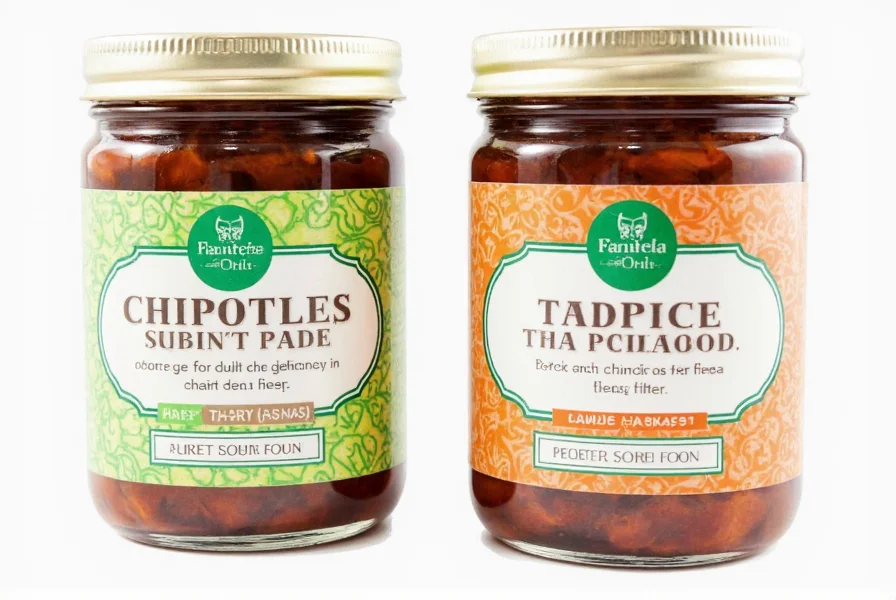
What exactly are canned chipotles in adobo?
Canned chipotles in adobo are smoke-dried jalapeño peppers rehydrated and canned in a flavorful adobo sauce. The sauce typically contains tomatoes, vinegar, garlic, and spices, giving the peppers a complex sweet, smoky, tangy flavor profile. The smoking process gives chipotles their distinctive deep, earthy character that regular jalapeños don't have.
How spicy are canned chipotles in adobo?
Canned chipotles in adobo typically range from 2,500 to 8,000 Scoville Heat Units (SHU), placing them in the medium heat range. For reference, a jalapeño is about 2,500-8,000 SHU as well, but because chipotles are smoked and concentrated, they often feel hotter in practice. The heat builds slowly rather than hitting you immediately, making them more manageable in cooking. The specific heat level varies by brand and batch, so it's best to start with a small amount and adjust to your taste.
Can I substitute fresh chipotles for canned ones?
Yes, but fresh chipotles are harder to find and lack the same smoky intensity. Canned versions are more convenient because the smoking process has already been done for you. If you do find fresh chipotles, you'll need to smoke them yourself to achieve a similar flavor profile. Alternatively, you could use chipotle powder (use 1/2 teaspoon powder for each chipotle pepper called for) or a combination of smoked paprika and cayenne pepper, though the flavor won't be identical.
How long does an opened can last?
When stored properly in an airtight container in the refrigerator, an opened can of chipotles in adobo will last for about 2-3 weeks. For longer storage, freeze them in portion-sized amounts (like in an ice cube tray) where they'll maintain quality for up to 6 months. The key is to ensure the chipotles remain submerged in their sauce or another liquid (like oil or vinegar) to prevent freezer burn or drying out.
Is chipotle hotter than jalapeño?
Yes — since it's dried and smoked jalapeño, the capsaicin becomes more concentrated. While fresh jalapeños range from 2,500-8,000 SHU, chipotles often feel hotter due to the concentration that happens during the smoking and drying process. However, the adobo sauce in canned versions helps temper the heat somewhat, making it more approachable. The heat from chipotles also tends to build more slowly than the immediate punch of fresh jalapeños.
What are the best ways to store opened canned chipotles?
The best storage methods include: freezing in ice cube trays (one cube per chipotle), covering with olive oil in a glass jar, or adding vinegar to extend freshness. Always keep the chipotles submerged in liquid to prevent drying out. For refrigerator storage, use within 2-3 weeks; for freezer storage, they'll last up to 6 months. Make sure to label and date your portions for easy identification later.
Can I make my own canned chipotle in adobo?
Absolutely! Smoke fresh jalapeños until leathery (about 1-2 hours at 225°F), then simmer in homemade adobo sauce (typically made with tomatoes, vinegar, garlic, oregano, and cloves) and can using proper preservation techniques. However, this requires proper canning equipment and knowledge to ensure food safety. For most home cooks, buying canned versions is more practical, but homemade allows you to control the ingredients and heat level.
What can I use instead of canned chipotles in adobo?
Good substitutes include: chipotle powder (use 1/2 teaspoon for each pepper), smoked paprika mixed with a pinch of cayenne (1 teaspoon paprika + 1/8 teaspoon cayenne per pepper), or even liquid smoke with a bit of red pepper flakes (use sparingly). For the sauce component, mix tomato paste with vinegar, garlic, and spices. None are perfect substitutes, but they can provide similar smoky notes when chipotles aren't available.
How can I reduce the heat of canned chipotles in adobo?
To reduce the heat: start with less than the recipe calls for, remove any visible seeds (though often minimal in canned versions), balance with dairy (yogurt, sour cream), add sweetness (honey, maple syrup), or incorporate acidity (lime juice, vinegar). Remember that chipotle heat builds gradually, so give your dish time to develop before adjusting. You can also soak minced chipotle in milk or cream for 10-15 minutes to draw out some capsaicin before using.
What dishes work best with canned chipotles in adobo?
Canned chipotles excel in: barbecue sauces, marinades for meats, tomato-based soups and stews, Bloody Mary cocktails, mayonnaise-based sauces, bean dishes, and even chocolate desserts. Their smoky depth enhances anything that benefits from complexity - try them in unexpected places like honey for glazes, stirred into hummus, or blended into salad dressings. A little goes a long way, so start with small amounts and adjust to taste.
Final Thoughts
Canned chipotles in adobo are one of those under-the-radar ingredients that, once discovered, become a kitchen staple. With the right storage hacks, usage ideas, and knowledge of pairings, you can turn this humble can into something extraordinary.
So go ahead — open that tin, get your hands a little messy, and let the smoky magic begin. Whether you're spicing up weeknight dinners or impressing guests at your next dinner party, chipotles in adobo are your secret weapon.
And remember: a little goes a long way… but the flavor lingers forever.
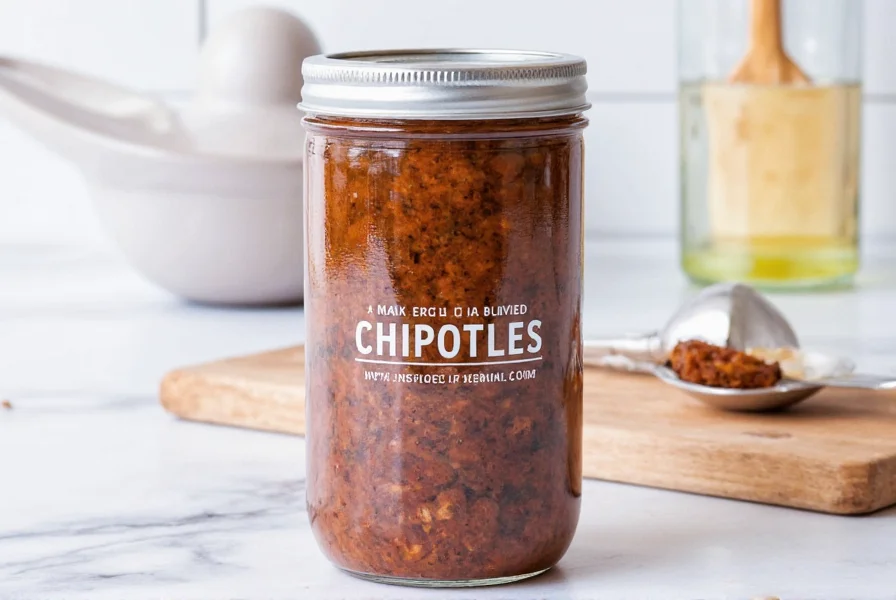

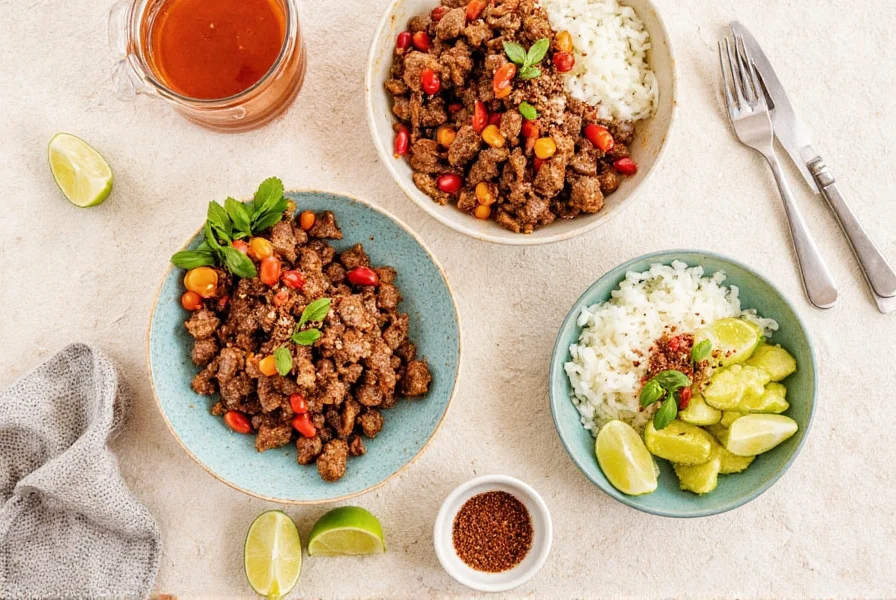









 浙公网安备
33010002000092号
浙公网安备
33010002000092号 浙B2-20120091-4
浙B2-20120091-4